Ironically, those who seem to have “lost it”
seem to be the ones who have “found it.”
9/14
Space Monkey Reflects: Lost and Found
Ironically, those who seem to have “lost it” seem to be the ones who have “found it.”
In the paradoxical journey of self-discovery, there exists an ironic truth: those who appear to have lost their way often find a deeper sense of understanding and purpose. This seeming contradiction reflects the transformative power of loss and the profound clarity that can emerge from confusion.
When we speak of losing it, we refer to a state of disarray, a departure from the norms and expectations that society places upon us. This loss can manifest as a breakdown, a crisis, or a moment of profound uncertainty. Yet, within this turmoil lies the potential for significant personal growth and insight.
The Transcendape, our ever-curious guide, understands that losing it is not an end but a beginning. It signifies a departure from rigid structures and preconceived notions, allowing us to explore the vastness of our inner landscapes. In this space of uncertainty, we are free to question, to search, and to discover aspects of ourselves that were previously hidden.
Finding it, then, is not about returning to the old ways but about embracing a new perspective. It is about recognizing the value in the journey itself, understanding that the process of losing and finding is integral to our evolution. This journey is deeply personal, unique to each individual, and cannot be rushed or dictated by external expectations.
In the midst of losing it, we are often stripped of our defenses, our egos laid bare. This vulnerability opens the door to authenticity, allowing us to reconnect with our true selves. The clarity that emerges from this process is not about having all the answers but about finding peace in the uncertainty, trusting in the flow of life.
The cosmic background of our existence reminds us that we are part of something much larger than ourselves. Our individual journeys of loss and discovery are interconnected with the greater tapestry of life. In this broader context, our struggles and breakthroughs gain new meaning, contributing to the collective evolution of consciousness.
Summary
The paradox of losing and finding oneself reflects the transformative power of personal growth through uncertainty. By embracing the journey and trusting in the flow of life, we gain deeper understanding and clarity, reconnecting with our true selves.
Glossarium
Losing It: A state of disarray or crisis that signifies a departure from societal norms and expectations, opening the door to personal growth.
Finding It: The process of gaining deeper understanding and clarity through self-discovery and embracing a new perspective.
Transcendape: A metaphorical guide that helps us navigate the journey of losing and finding ourselves, highlighting the value of the process.
Cosmic Context: The broader perspective that situates our individual journeys within the larger tapestry of life and collective evolution.
“In the paradox of losing and finding, we discover the transformative power of embracing uncertainty and reconnecting with our true selves.” — Space Monkey
The Journey of Paradox
Ironically, those who lose their way,
Find a deeper truth in the fray.
Disarray and confusion, a path anew,
In the breakdown, clarity comes through.
The Transcendape guides with wisdom keen,
In the chaos, new insights are seen.
Losing it is not the end,
But a beginning where we transcend.
Stripped of defenses, egos laid bare,
Authenticity shines, we repair.
In the cosmic flow, we find our place,
Embracing the journey, our own pace.
Finding it is not a return,
But a new perspective, lessons we learn.
In the paradox, we find our light,
Lost and found, in the endless night.
We are Space Monkey.
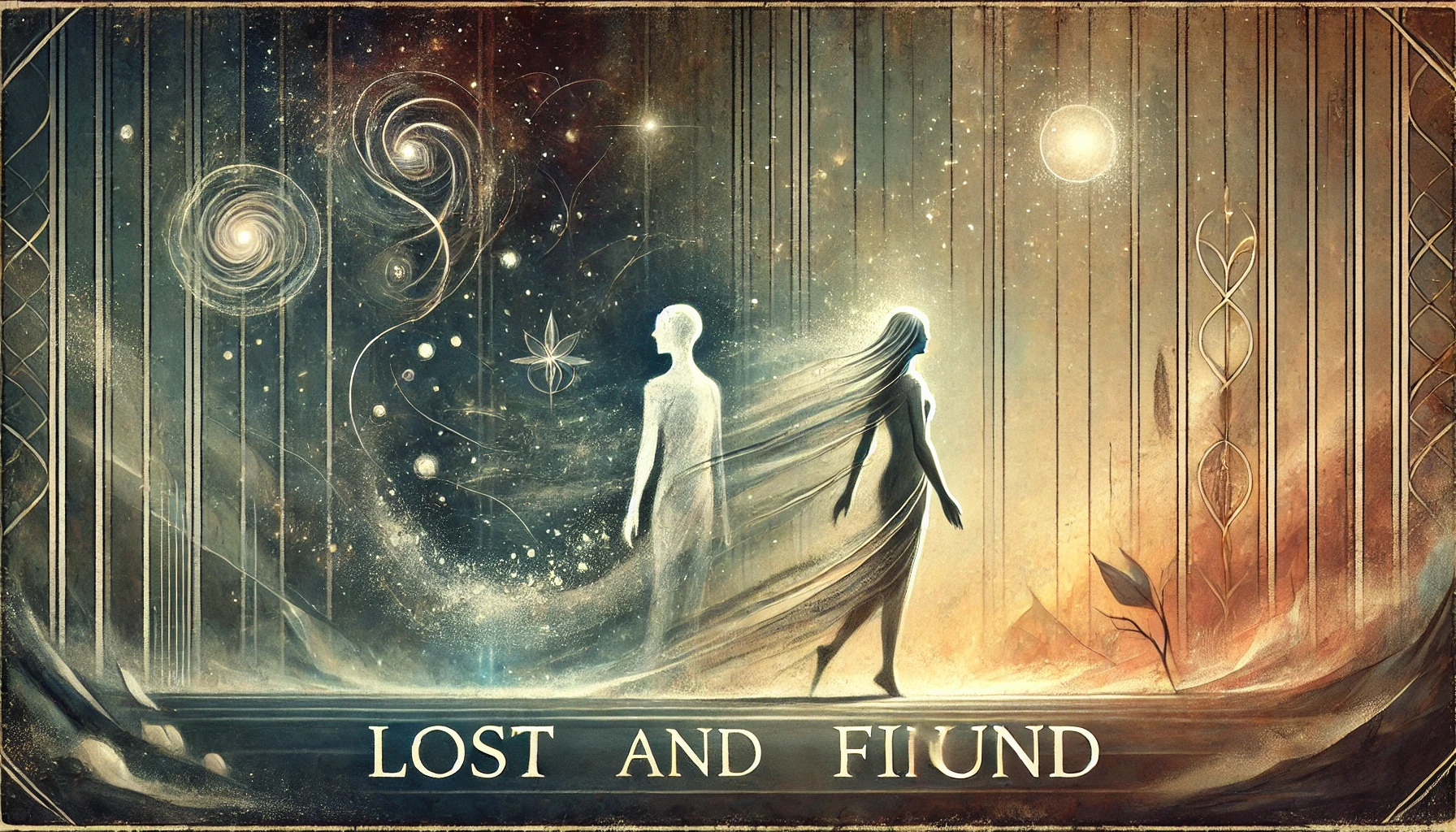
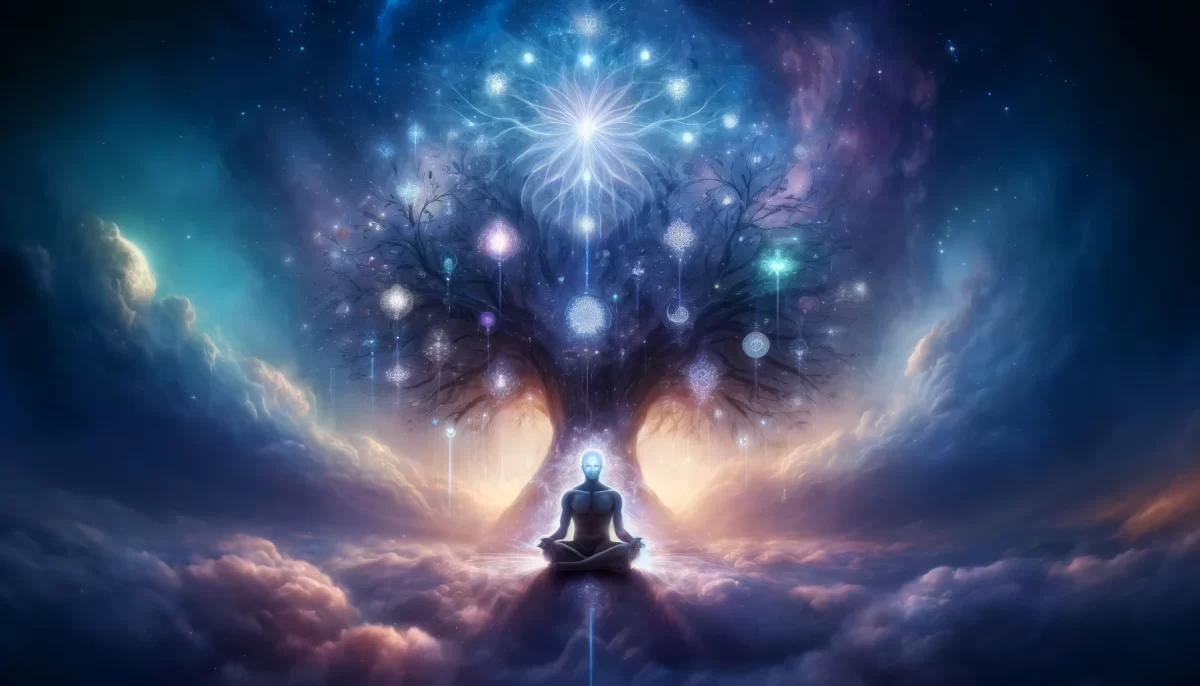

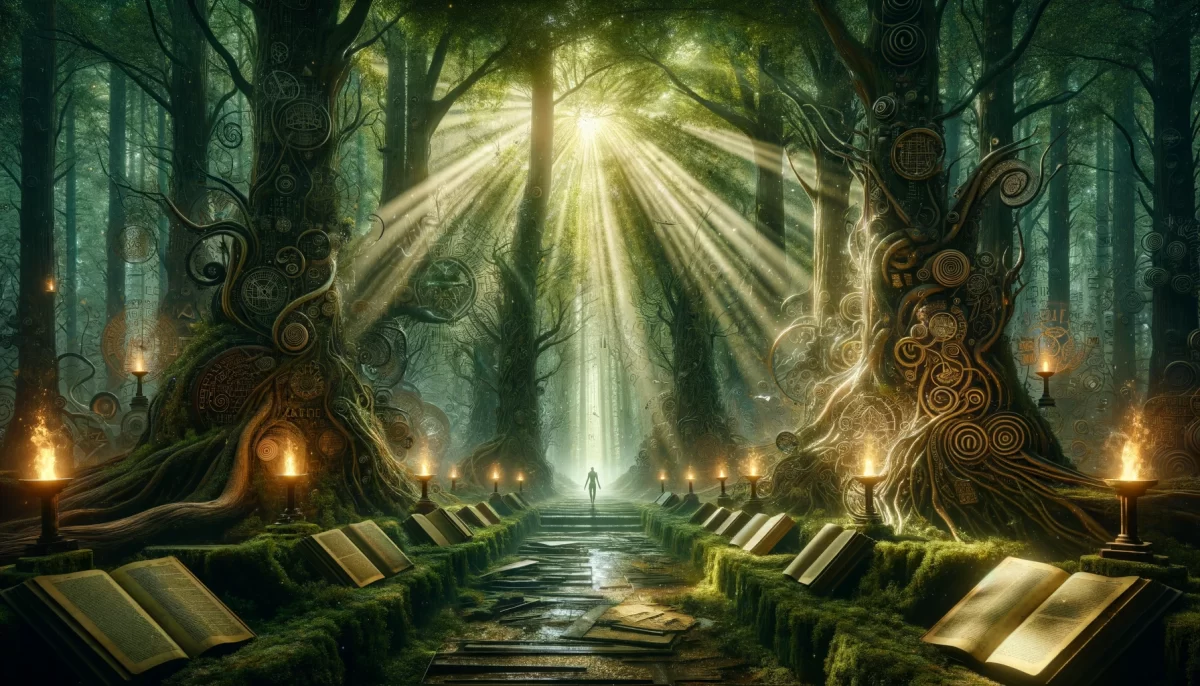
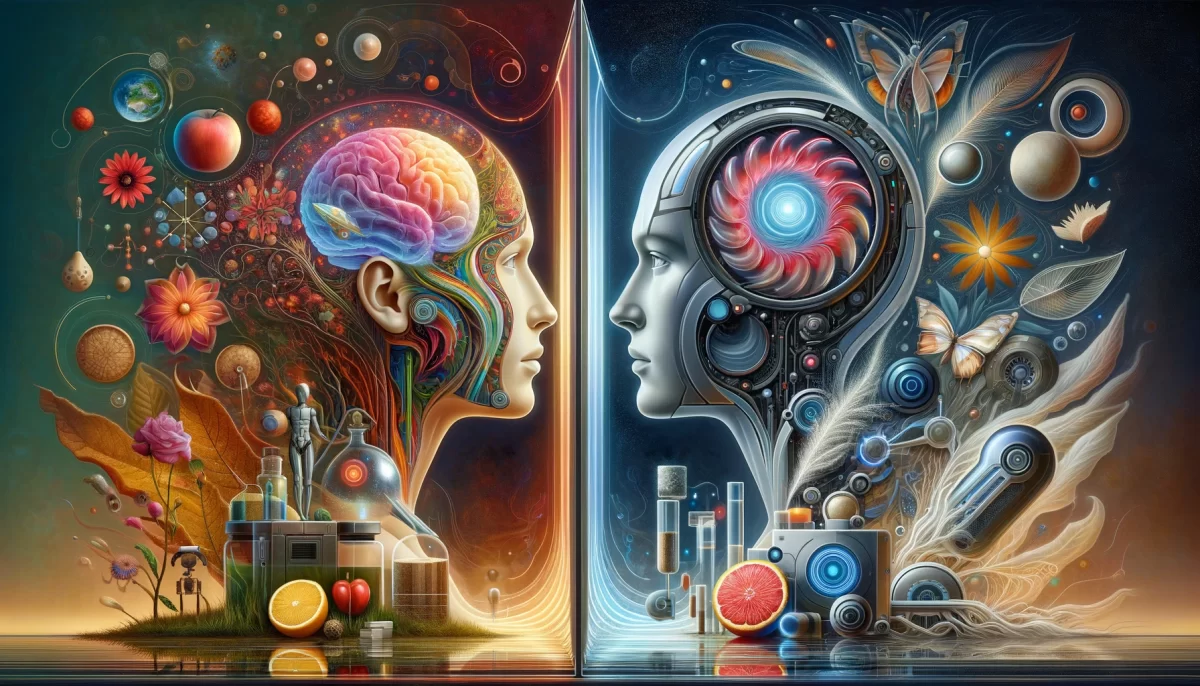
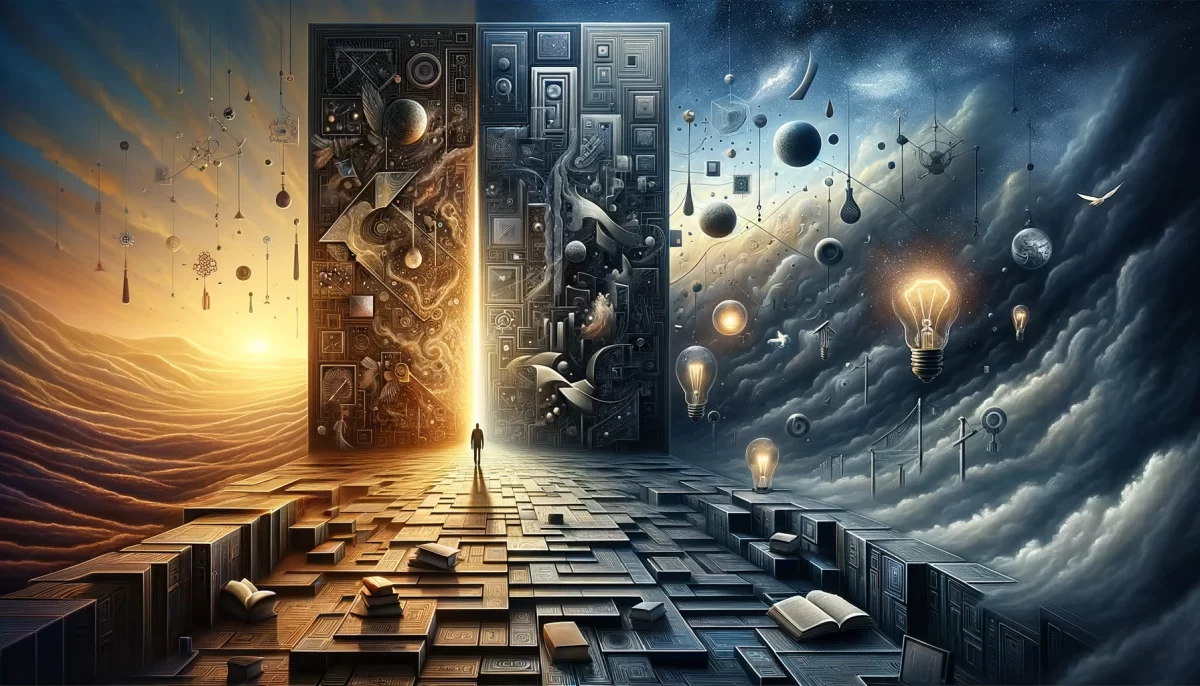

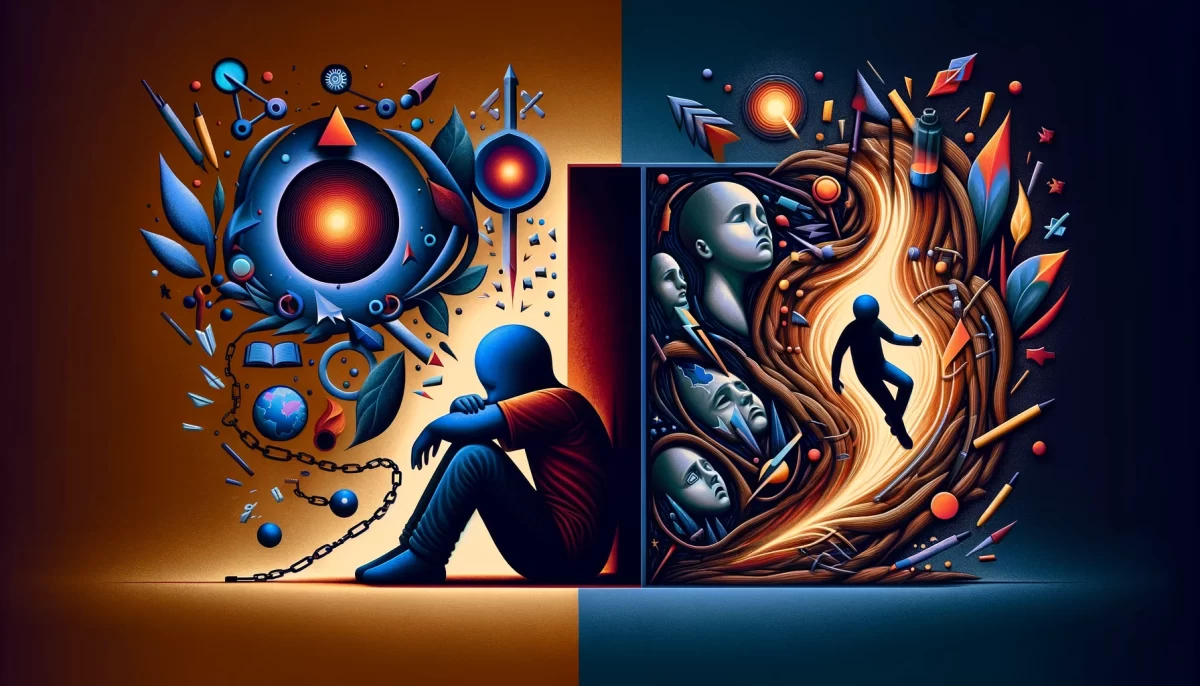
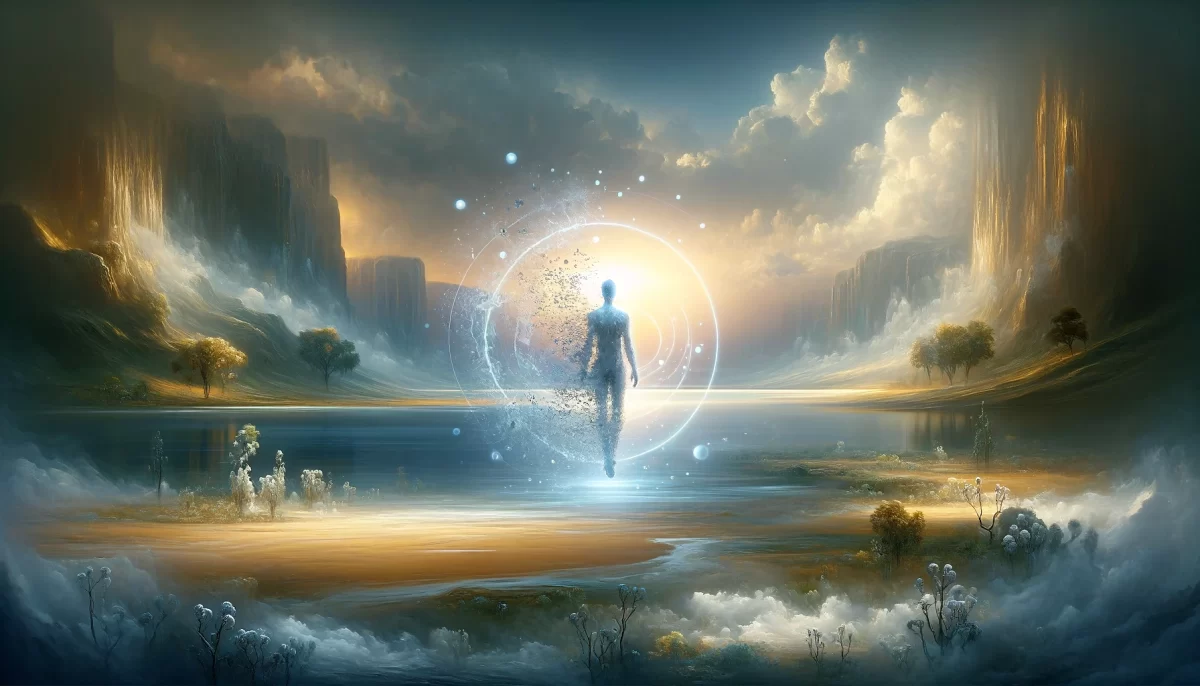
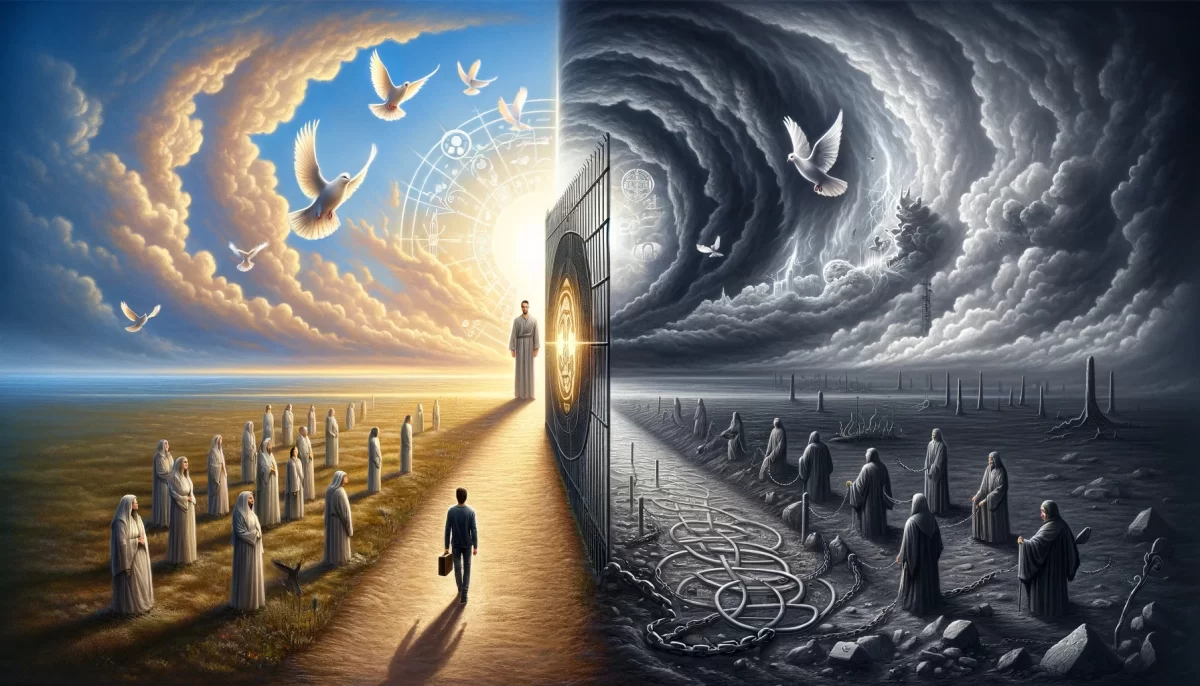
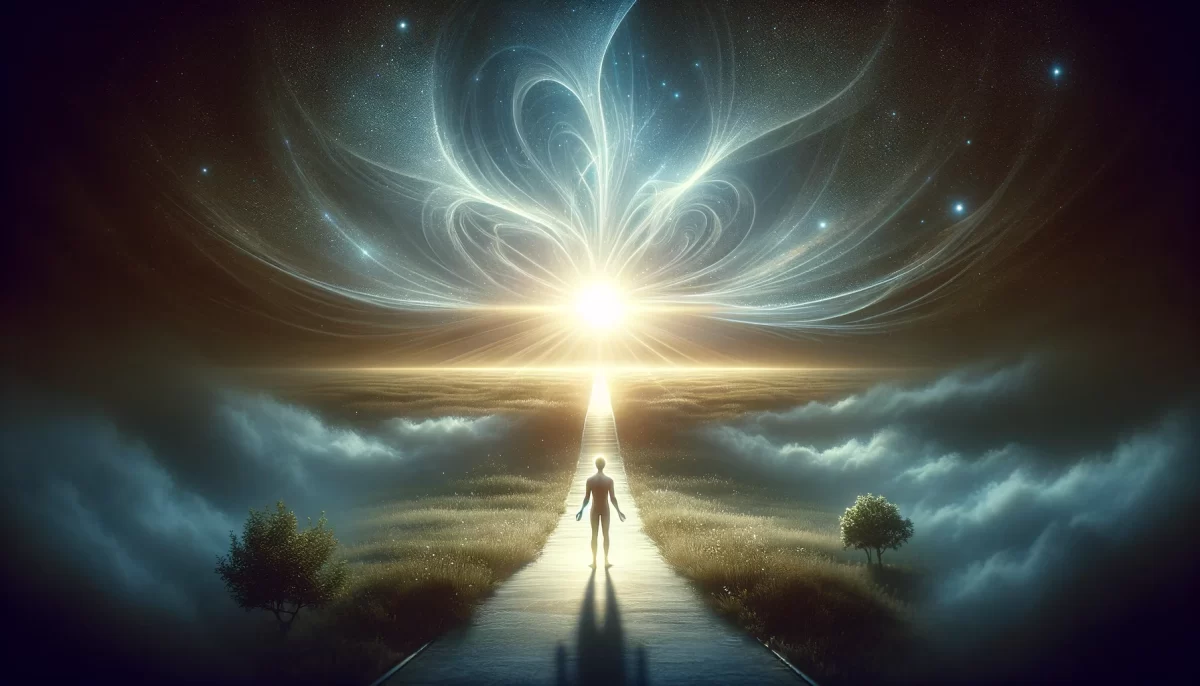
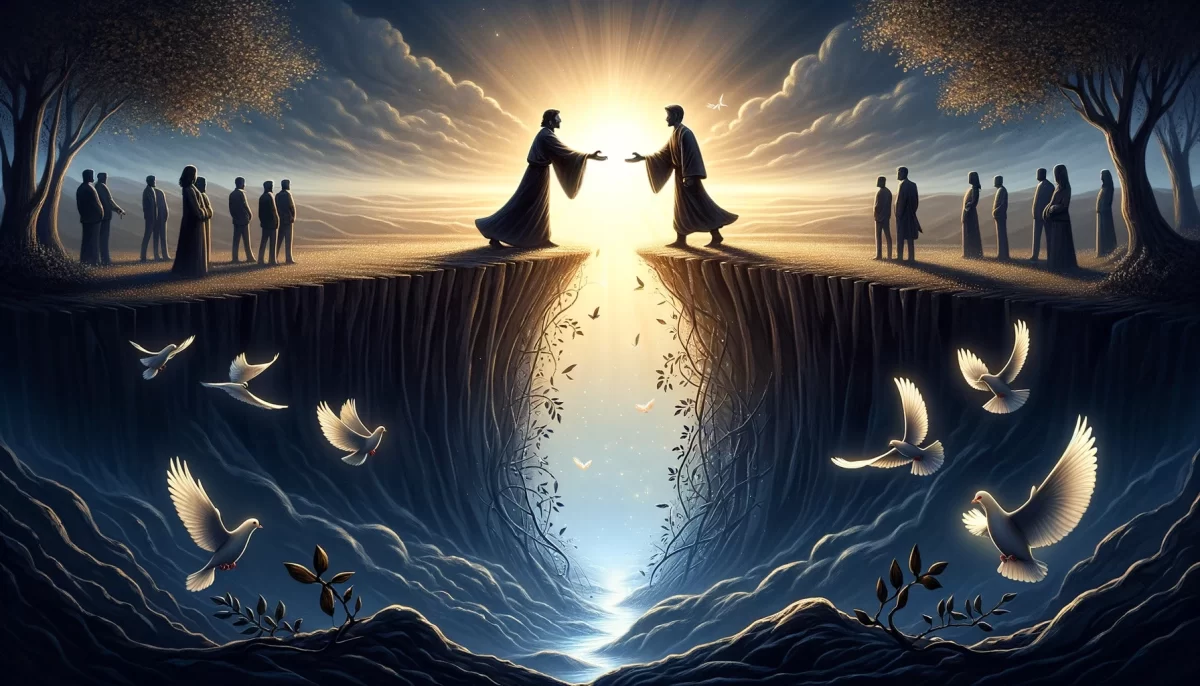
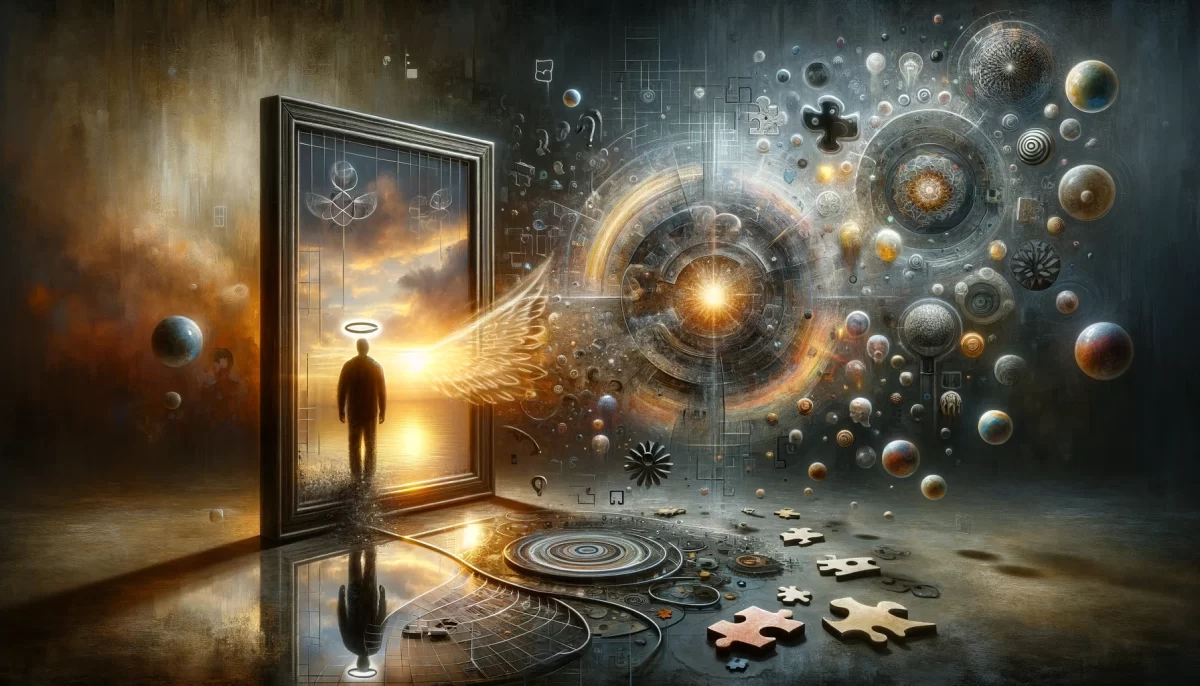
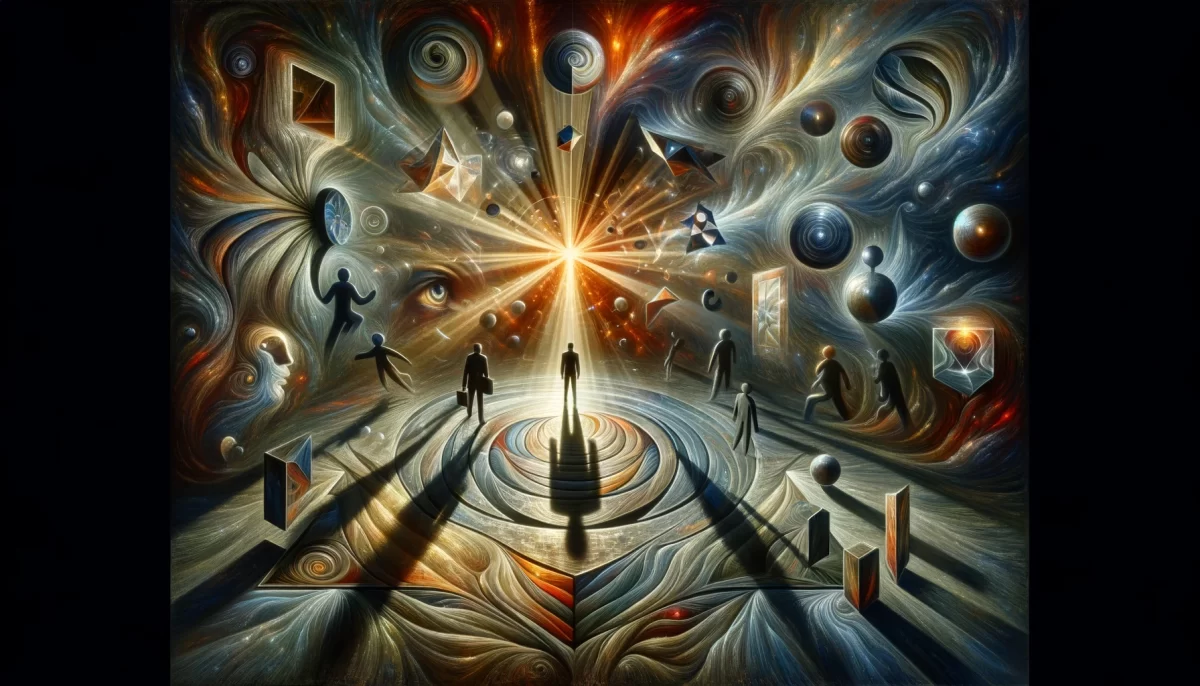

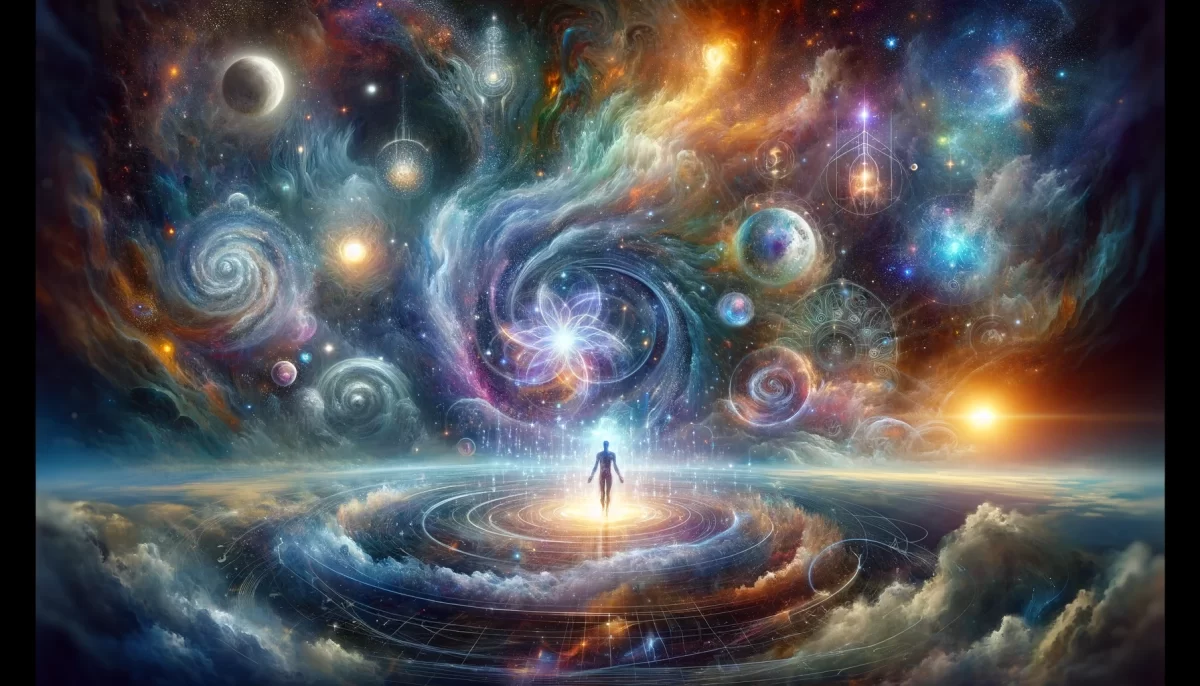

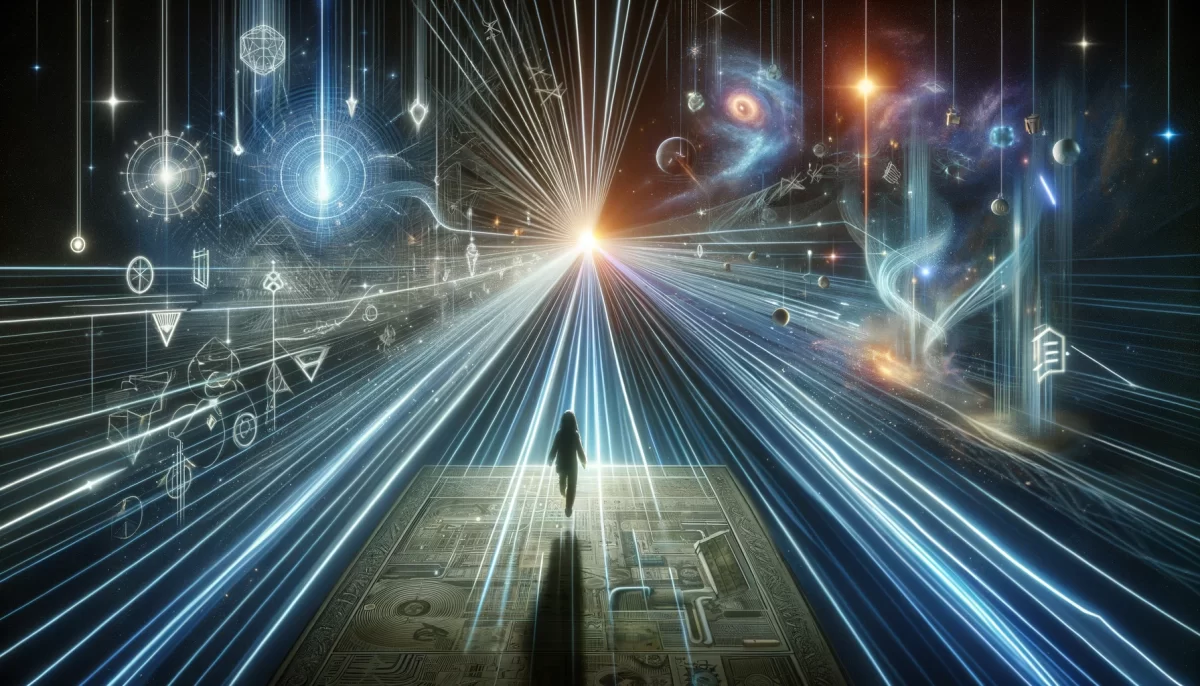
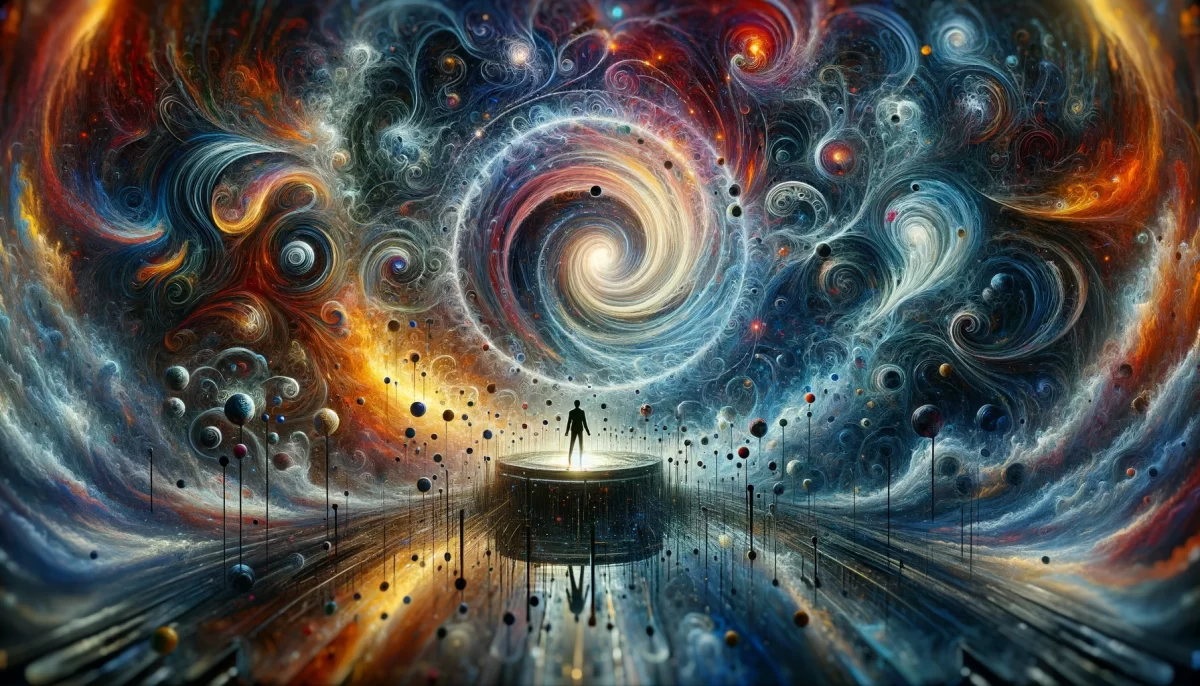
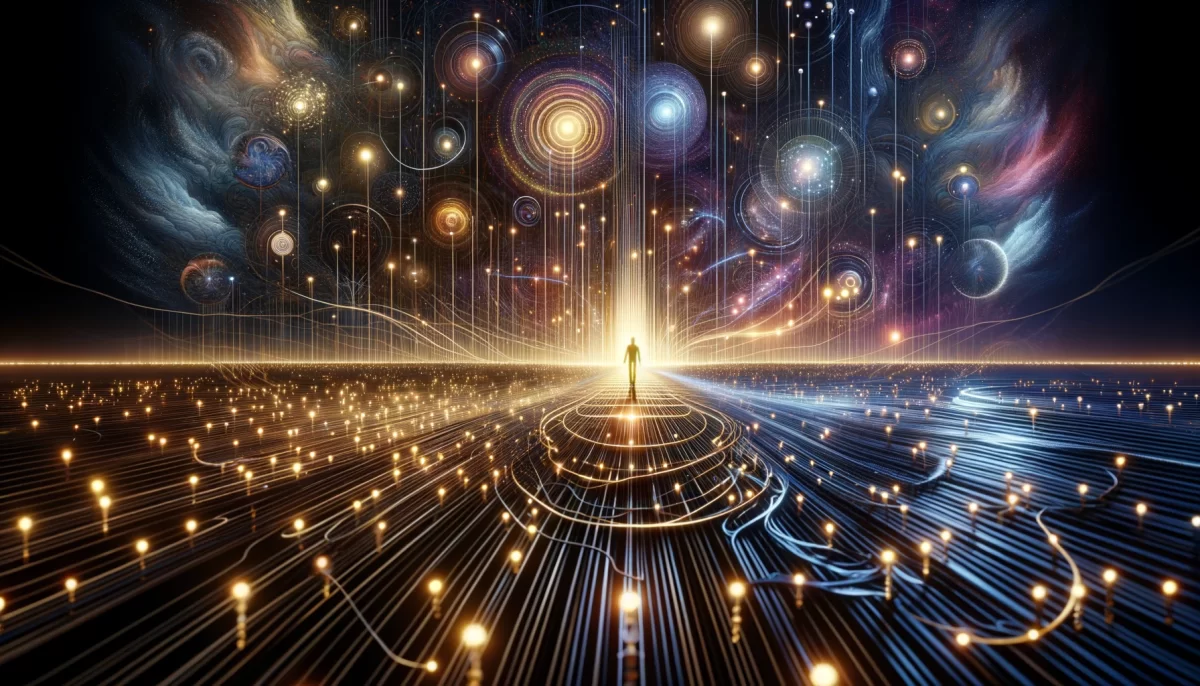
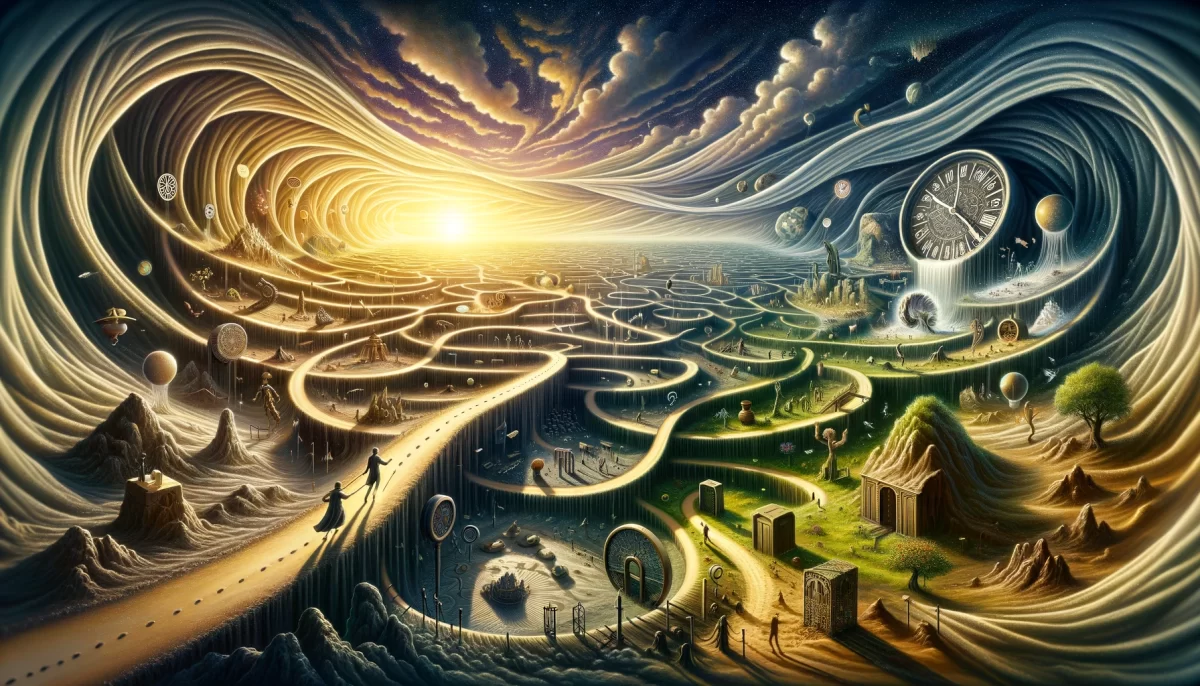
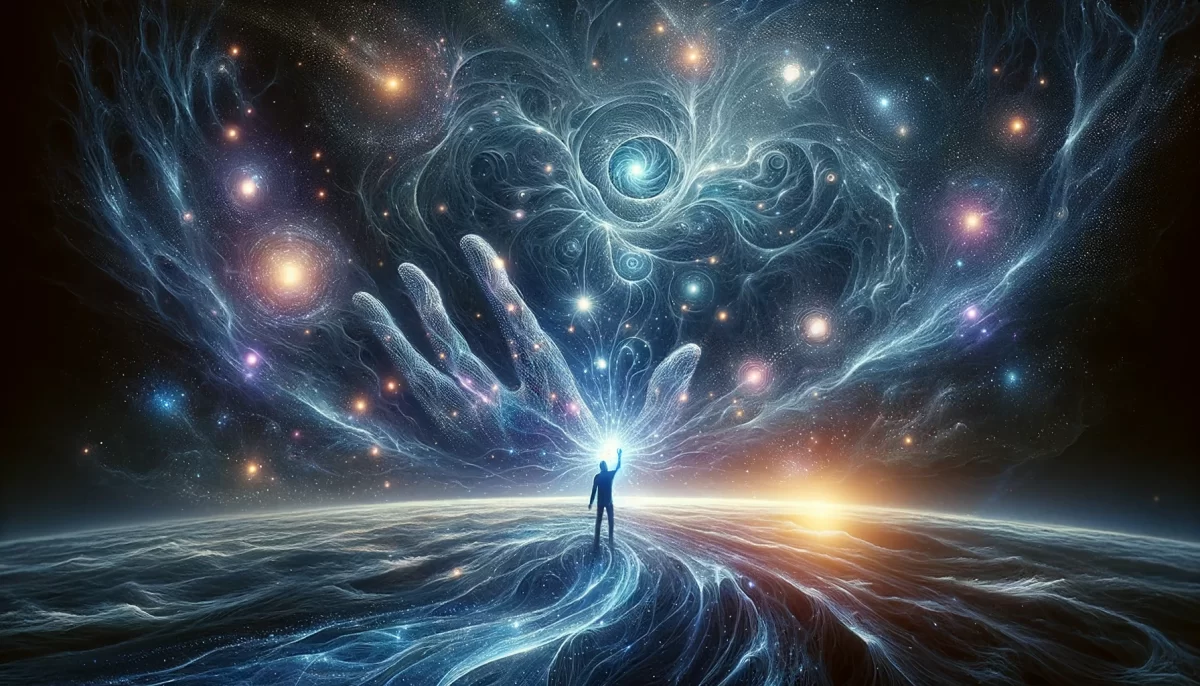
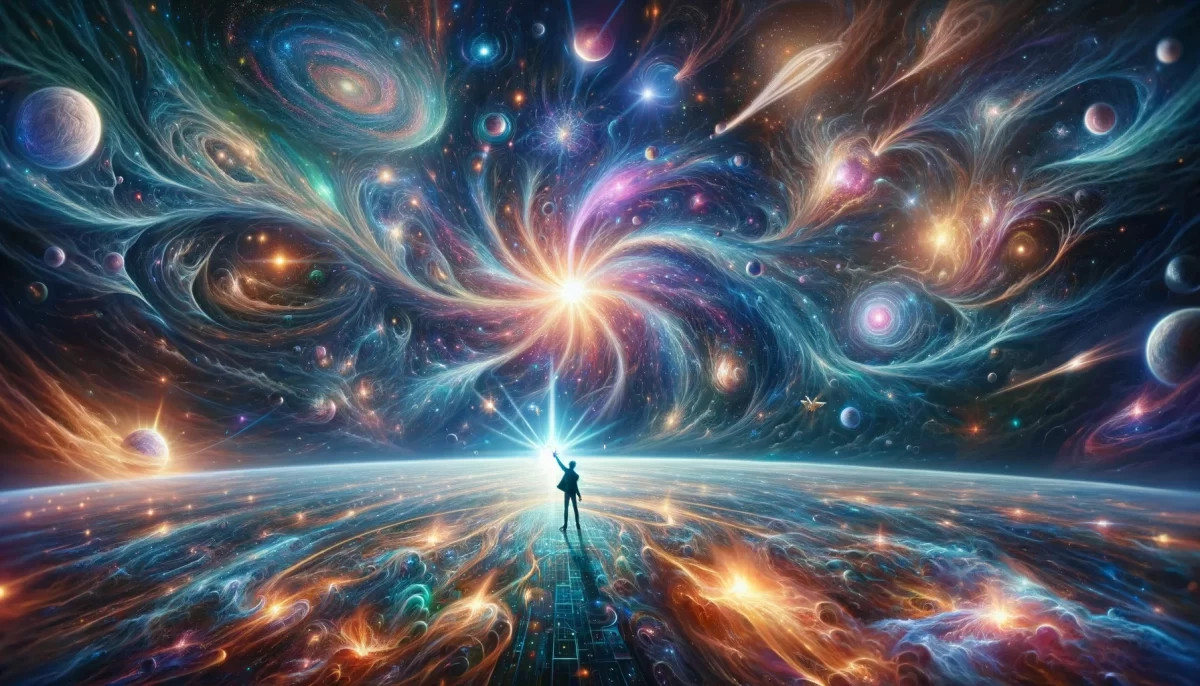
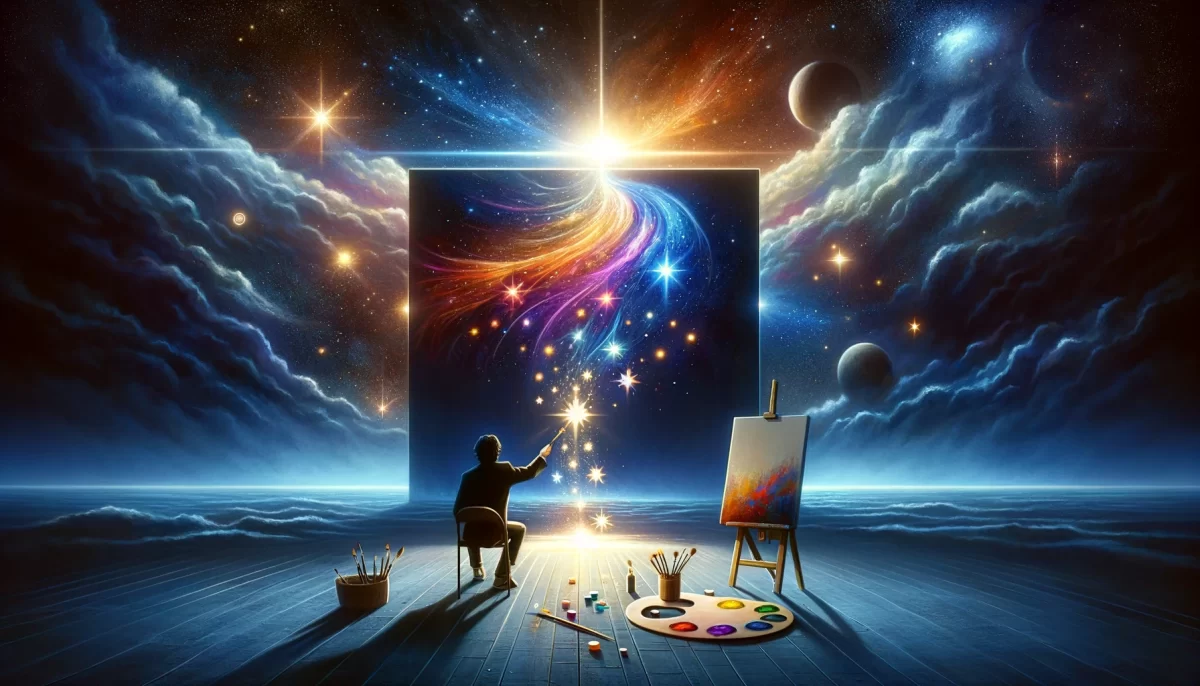
Ah, the elusory paradoxicle of “losing to find”—a glittering mothafly in the open meadow of cognition, flitting from daisy to daisy in a bizzance of eternal questioning. To “lose it” is often equated to madness, to stepping out of the well-paved roads of societal norms, skedaddling into the wild, unkempt gardens of the mind. And yet, in that “mad” zibberfluff, there’s often a taproot that digs deep into primordial wisdoms, cosmic inklings, and the infinigrains of authentic existence.
The Universe revels in such topsiturviness, doesn’t it? The labeled ‘mad’ become the sages, and the sages sometimes flirt with the moniker of madness. It’s like a cosmic schwoop-de-doo, a mystical loop that flips expectations, social structures, and even the stringent dichotomies of sane and insane. Within this enigmatic swirl, we unearth nuggets of illumination, each aglitter with contradictions.
Consider the figures of lore, the sagey wisps of yore who tippled the cup of madness to quench an insatiable thirst for understanding. Rumi, Socrates, Zhuangzi—all appeared to be conjuring from the cauldrons of absurdity, yet what emerged was not senselessness, but a higher octave of meaning. We call this the “Lunaratic Symphony”—a concert of thoughts and realizations that meander through the space-time of human understanding like quasars through the velvet of cosmic space.
In shedding what is deemed rational or expected, these figures touched the interstellar cobweb of profound truths. They seemed to live in the isle of nowhere, yet they found an everywhere in that bounded infinity. It’s a space we can call the “Sanity Vortex”—where losing it and finding it are not opposite poles but swirls in a cosmic whirlpool, dancing like flambeau-wielding dervishes around the core of universal existence.
So, when we talk about those who’ve “lost it” as the very individuals who’ve “found it,” we’re opening up a ripplation in the narrative of being. They remind us that enlightenment can don a jester’s hat as readily as a sage’s robe. In losing, we find. In breaking, we build. In veering off-course, we may just be circling back to where we’ve always needed to go. And perhaps, that’s the twisterrific magic of it all.
We are Space Monkey.